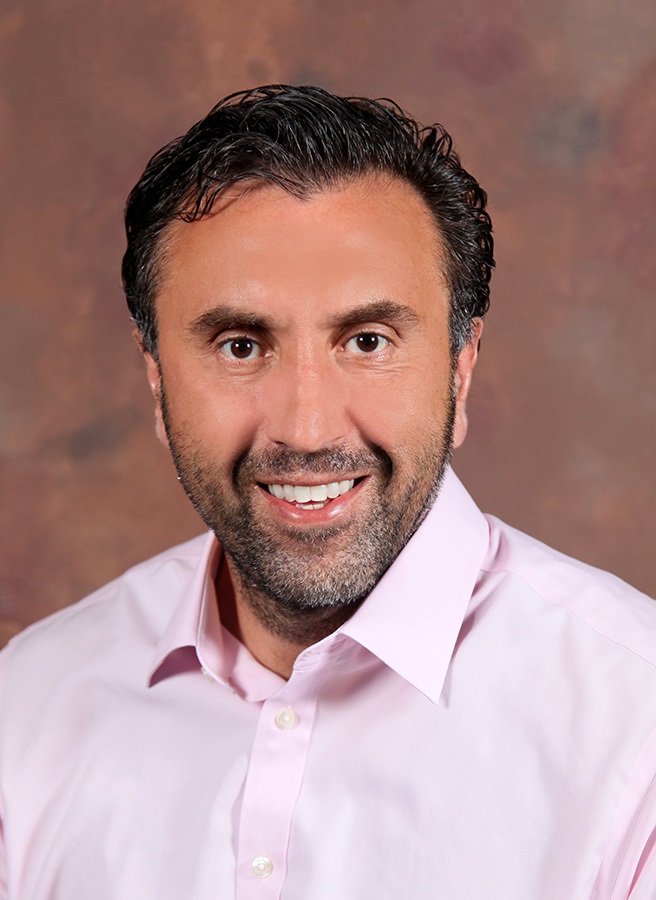- Augusta University
- Colleges & Schools
- Medical College of Georgia
- Pharmacology & Toxicology
- R. Daniel Rudic, PhD
R. Daniel Rudic, PhD
Research Interest, Education & Publications
 |
|
Research & Education Building, CB 3620
|
Office phone icon: 706-721-7649 Members of the Lab |
RESEARCH INTEREST
Our main interest is how the blood vessel becomes diseased and how it drives disease. Firstly, we are interested in how disease progresses in blood vessels themselves, by studying the process of how arteries ‘rebuild’ themselves. This process is called vascular remodeling. In the small picture, we want to determine which molecules are most robustly increasing and decreasing during remodeling, with the goal to identify new factors that could be targets to treating disease. The blood vessels (arteries) have different cell types and layers, but our cellular focus is on the inner-most blood vessel lining, the endothelial cell layer. The molecular targets in the endothelial cell we are focused on include bHLH transcription factors that control circadian rhythm (Bmal1) and endothelial identity (Tal1). This project may relate to vascular diseases, such as atherosclerosis. A second, emerging area of interest for us, is how blood vessels are influenced by aging and how arteries interact with the brain in its memory center (the hippocampus). This may be relevant to diseases such as Alzheimer’s disease. Our studies are performed in mice, where we induce remodeling by a surgical ligation of the carotid artery, and we study histopathology and signaling (via focused and profiling approaches) in the vessels and the brain.
EDUCATION AND POST-DOCTORAL TRAINING
08/2005 Postdoctoral University of Pennsylvania
12/2000 PhD in Pharmacology Yale University
06/1996 MS in Pharmacology Yale University
05/1991 BS in Biology Temple University
ACADEMIC/ADMINISTRATIVE APPOINTMENT
2019 - Present Professor, Medical College of Georgia, Department of Pharmacology and Toxicology
EDITORIAL BOARD
Board of Atherosclerosis and Vascular Medicine (specialty section of Frontiers in Cardiovascular Medicine)
GRANT REVIEW PANELS
Ad hoc NIDDK DDK-B, study section
AHA Career Development Award Vascular 1 review panel (2021)
CONTRIBUTIONS TO SCIENCE
Hermida RC, Smolensky MH, Balan H, Castriotta RJ, Crespo JJ, Dagan Y, El-Toukhy S, Fernandez JR, FitzGerald GA, Fujimura A, Geng YJ, Hermida-Ayala RG, Machado AP, Menna-Barreto L, Mojon A, Otero A, Rudic RD, Schernhammer E, Skarke C, Steen TY, Young ME, Zhao X. Guidelines for the design and conduct of human clinical trials on ingestion-time differences - chronopharmacology and chronotherapy - of hypertension medications. Chronobiology international. 2021;38:1-26
Xu Y, Pi W, Rudic RD. Old and new roles and evolving complexities of cardiovascular clocks. Yale J Biol Med. 2019;92:283-290
Anea CB, Merloiu AM, Fulton DJR, Patel V, Rudic RD. Immunohistochemistry of the circadian clock in mouse and human vascular tissues. Vessel plus. 2018;2
Shang X, Pati P, Anea CB, Fulton DJ, Rudic RD. Differential regulation of bmal1, clock, and endothelial signaling in the aortic arch and ligated common carotid artery. Journal of vascular research. 2016;53:269-278
Cheng B, Anea CB, Yao L, Chen F, Patel V, Merloiu A, Pati P, Caldwell RW, Fulton DJ, Rudic RD. Tissue-intrinsic dysfunction of circadian clock confers transplant arteriosclerosis. Proceedings of the National Academy of Sciences of the United States of America. 2011;108:17147-17152
Anea CB, Zhang M, Stepp DW, Simkins GB, Reed G, Fulton DJ, Rudic RD. Vascular disease in mice with a dysfunctional circadian clock. Circulation. 2009;119:1510-1517